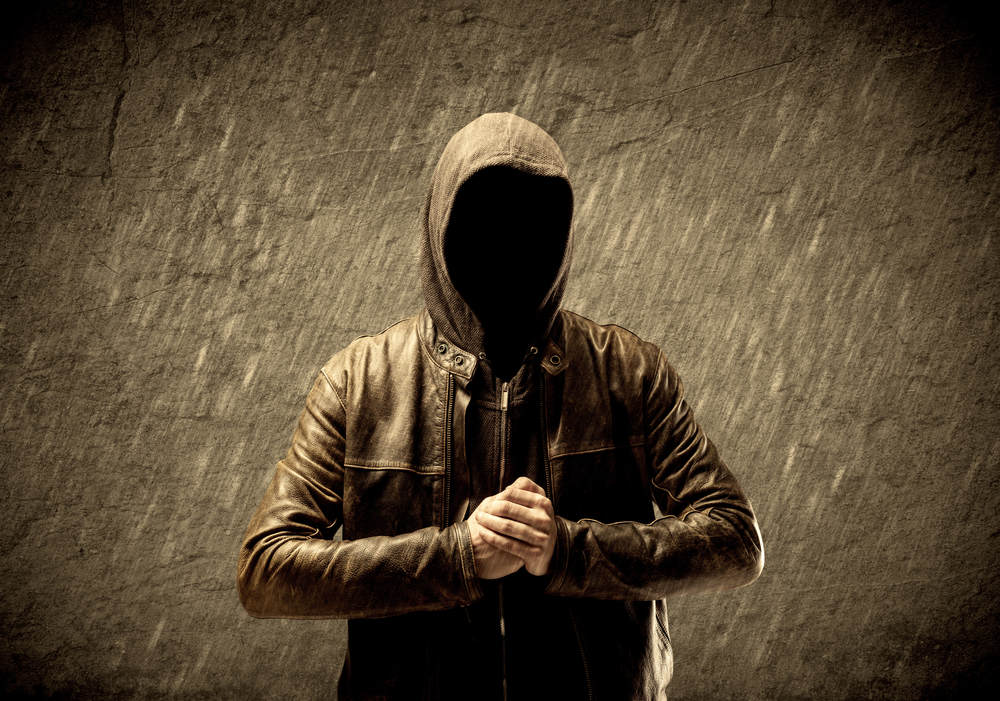by Ellen
Picture this scenario: You’re visiting family 300 odd km’s from home and need to make a quick dash to the shops for that forgotten item. You successfully get Miss 3 into the car and out again with the promise of a special surprise for good behaviour. You make your way into the shops, finally find the department you are looking for and your mobile rings. You hunt around in your handbag for that bloody phone and let go of Miss 3’s hand for a moment. You miss the phone call anyway and can’t be bothered with listening to the voicemail just yet. You find the item you were looking for and think ‘great, let’s get out of here.’ BUT. Where is Miss 3? She was right here beside you. You call her name and look from left to right. You look in the next aisle, calling her name again, and the aisle after that. You check the toy department and the book section. This store seems much bigger than when you walked in. And then that feeling sets in. That utter terror and panic of not knowing where your child is.

Adding to my panic, I have been in this situation before. Yes that’s right, this is not my first experience of a missing child, although I am usually looking at this job from the other side. My other full time job is a Senior Constable of Police. I have attended jobs like this many times before. I’ve stood in front of panicked parents and asked the same questions; notebook and pen ready to write any points of interest they may say.
Did my years of training and attending similar jobs help in my time of panic? It’s hard to say. But it did make me think about our young children and stranger danger. The truth is, 2 and 3 year olds don’t know what a stranger is. So from a policing perspective here are my tips for teaching our little ones basic safety without instilling any unnecessary fear:
Out and About
Start with discussing general safety with your children. When you are out and about ask them to stay close. Talk about what to do if they can’t find mum or dad in the shopping centre. With my little Miss Explorer there is no point telling her to stand still if she realises she is lost. So we have talked about finding a ‘safe spot’ – i.e. the front of the store at the service desk or checkout. Most staff are aware of what to do and will have procedures in place to deal with lost children.
As a parent, after your first initial panicked look around, notify the store staff or security of your situation as soon as possible. The quicker people are notified the quicker they will be able to help. Time can be critical in these situations. At the very least store staff may be able to notify security or access CCTV which can help in locating your child.
Safe Adults
A blanket ‘don’t talk to strangers’ approach will not work with children at this age. A stranger is not necessarily a good or bad person – it is just someone they don’t know. As an alternative, teach your children about Safe Adults they are able to approach if they ever need help when they are out and about. By Safe Adults I am referring to police, teachers, firemen, ambos, security staff, doctors, even another mum pushing a child in a pram.
I understand that in full uniform, even with or without the firearm and other equipment I carry, I can look pretty intimidating. Naturally, children will feel nervous and shy around police officers (except mine who can operate a police radio better than most, thanks to both mum and dad and even granddad being in the job). Teach your children that police and other Safe Adults are there to help. I talk to many people on my daily shifts, not because they have done anything wrong, but more often than not to check they are ok.
Avoid Scary Statements
DO NOT be one of those parents that when I walk past in full uniform says to their child a variation of “stop doing that or the police officer will take you away”. This destroys any chance of children approaching police for help.
Also, as tempting as it may be to say similar warnings, such as, “A stranger will take you away and I will never see you again;” this will only frighten your child unnecessarily. The ultimate aim is to teach children to be safe, to be aware of predatory strangers and to be self-protective.
Basic Safety
Teach your children they have the right to scream, yell, fight and even kick when they feel afraid. The ‘Safety4Kids’ websites promote “Yell & Tell”: teaching children to yell “help” or “I don’t know you” to get someone’s attention, and then tell someone you trust what has happened. This is a brilliant concept even for 2 and 3 year olds.
We know that all children love gifts and lollies, however we need to teach our children when it is ok to accept these gifts. Adults they don’t know may offer lollies or gifts in an attempt to get them to come somewhere with them. In this situation a child should back away from that adult and never go anywhere with them or get into their car.
My name is…
I recall a job not that long ago on very quiet early weekend morning; we had located a young child wandering around. Definitely not a normal sight in those predawn hours no matter where you work. After the normal enquiries made at the scene we still had no idea who this child was or where this child had come from. Much to the young child’s delight, a ride back to the police station was the next step. Thankfully, the child was able to tell us their first name. But that was the only information we had- no address, no parent details and certainly no report of a missing child.
As silly as it sounds, I still ask children if they know mum’s name or dad’s name when I talk to them. The answer, yep you guessed it, “mum and dad”… ah yes, I want to hit myself with my own notebook every time I do it.
My eldest daughter took great pride in learning her name –in fact, we went through a stage where she told everyone we spoke to what her name was. But I believe it’s equally important that children learn their surnames as well. From a policing perspective it is so much quicker to make enquiries about a child if they are able to tell you their surname as well.
Practice makes perfect
If your children are anything like mine, they will learn through repetition. Try to talk about safety and stranger danger when you are out and about. Point out safe adults and safe places in stores. Role playing is also a brilliant way to teach your children. Pretend to be a stranger and ask your child to show you what he or she would do. There is no need to overdo it, but it will soon become second nature that can be expanded on as they grow older.
Where to go for more information:
Each police force has their public website with plenty of information including child safety:













